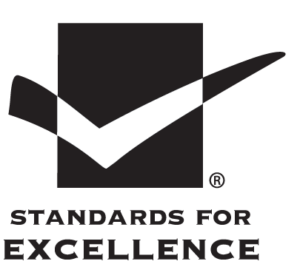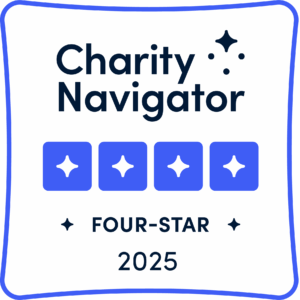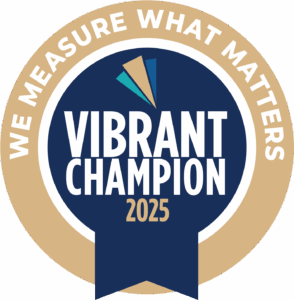Legacy Giving
Supporting Survivors and Creating the Future

Would you like to help ensure the long-term sustainability of WC&S while also enhancing your own financial health?
It is possible through a planned gift, which can be customized to meet your individual goals while working alongside a professional financial planner and/or attorney.
Many generous and kind donors have made thoughtful planned gifts to WC&S which have assisted in enriching and supporting our many life-changing programs and services throughout our over 50 years in existence.
By definition, a planned gift is any major gift, made in lifetime or at passing, as part of a donor’s overall financial and/or estate planning. This means that donors are often able to make a larger gift than they could usually make from their typical income. Types of planned gifts can include bequests, beneficiary designations, annuities, and trusts.
The following information is not intended to provide legal or tax advice and is not a substitute for the advice or services of an attorney or tax advisor.
If you have included WC&S in your estate plans or would like to learn more about making a legacy gift to WC&S, please reach out to Kristin Brown, Chief Development Officer, at brownk@wcspittsburgh.org or by phone at 412.894.4551.
Bequests
Making a bequest through your will or “living trust” could be the most realistic way to provide a substantial contribution to WC&S and obtain major benefits for yourself and your estate. A gift through your estate may reduce or even eliminate federal estate taxes. Most states provide estate or inheritance tax benefits for gifts through an estate to non-profit organizations such as WC&S.
Sample Bequest Language
I give, devise, and bequeath to Women’s Center & Shelter of Greater Pittsburgh (Federal Tax ID #25-1264376), a nonprofit organization located in Pittsburgh, Pennsylvania, or its successor organization,
- the sum of _________ dollars; or
- an amount equal to ________ percent of the net value of my estate; or
- all the rest, residue, and remainder of my estate.
This gift may be used for its general support and charitable purposes without restriction at the discretion of its trustees.
Life Income Gifts
You can make a gift to WC&S and receive direct financial benefits; an income for life for yourself, your spouse, and/or your children; and a charitable income tax deduction. Capital gains taxes can also be reduced or avoided when using long-term appreciated securities to fund the annuity or trust.
- A Charitable Gift Annuity pays a fixed amount per year for life for up to two beneficiaries aged 65 or older. The amount paid does not vary regardless of the economy or interest rates. WC&S offers charitable gift annuities in accordance with American Council on Gift Annuities rates. For donors aged 45-64, a deferred gift annuity may be an attractive charitable gift vehicle.
- A Charitable Remainder Trust provides substantial financial and tax benefits for the donor, as well as significant gifts to WC&S. This type of trust provides you or other named individuals income each year for life or a term not exceeding 20 years. At the end of the trust term, the balance in the trust goes to WC&S.
- A Charitable Lead Trust is the reverse of a Charitable Remainder Trust in that the trust pays WC&S an income for a fixed number of years. At the end of the term, the remainder of the trust is returned to you or your beneficiaries.
Gifts of Life Insurance
You can name WC&S as a primary, secondary, final, or remainder beneficiary of your current policy. You can also assign your yearly dividends to WC&S. You can give a fully paid policy or one on which you are still paying premiums, or obtain a new policy.
- Add WC&S as a beneficiary to your policy: Add WC&S as a beneficiary of your insurance policy without changing your will or other aspects of your estate plan.
- Give a paid-up policy to WC&S: Transfer ownership of a paid-up life insurance policy to WC&S. WC&S can elect to either cash in the policy right away or keep the policy and receive the death benefit later. You would receive an immediate income tax deduction for either the cash surrender value or the basis (usually the cost), whichever is less.
- Make WC&S the owner and beneficiary: Take out a policy and make WC&S the owner and beneficiary. Premium payments can be made by you directly to the insurance company or through WC&S by way of a gift to the organization. You can then take an income tax deduction for the amount of the paid premiums.
IRA Charitable Rollover
Charitable giving from your Individual Retirement Account may be a smart, tax-wise way to support WC&S. If you’re 70½ or older, you can make a tax-free charitable gift in 2025 of up to $108,000 per year directly from your IRA (with this $108,000 limit increasing to $111,000 in 2026). This gift allows you to meet the annual Required Minimum Distribution, exclude the distributions from your taxable income, and support the work of WC&S.

Mary Anne’s Story
Member, Board of Directors, Former Board Chair
“I think every donor wants to know that their contribution is impactful in some way. I have always been drawn to participate in efforts in which I could lift other women who are in need of assistance. Women’s Center & Shelter has a mission I wholeheartedly believe in, and provides immediate hope for those who urgently need it. I feel gratified that my contributions are making a difference right away at WC&S.
“I was about to update my will when I realized that I could do something now to ensure that the services I value today are available when needed in the future. I have invested time and donations in WC&S, and I would like to see that investment honored and secured. With a planned gift, I can make a donation decision now that is not subject to any estate tax, and I am comfortable that something that is important to me now will continue when I am gone.
“I am giving via two vehicles: My will and an IRA. In each, I have specified a percentage of the estate will go to WC&S. For the IRA, I completed a form that was provided by my financial planner. For the will, my attorney added a sentence into the document. In the event my financial circumstances change, I can change these documents at any time. If others are considering a planned gift, I would say that if you are making charitable donations now, you should definitely consider planned giving. Your beneficiaries may have different priorities, and you can ensure that a portion of your estate is truly a lasting legacy of your life’s work.”



